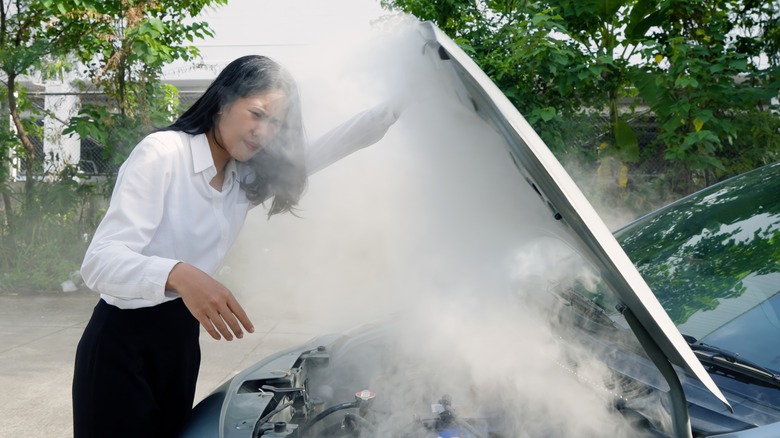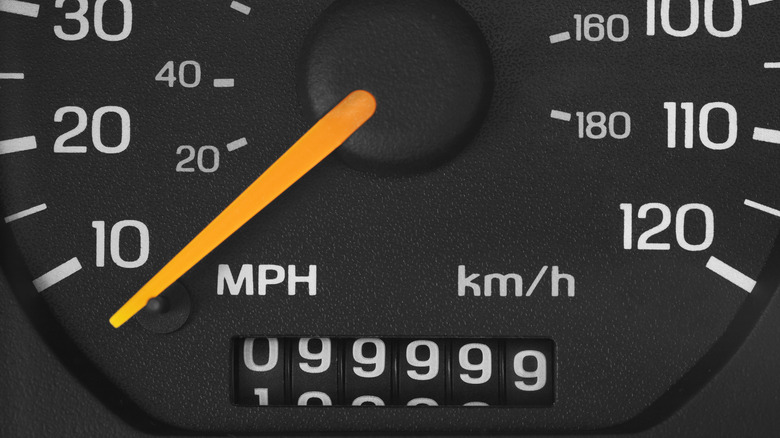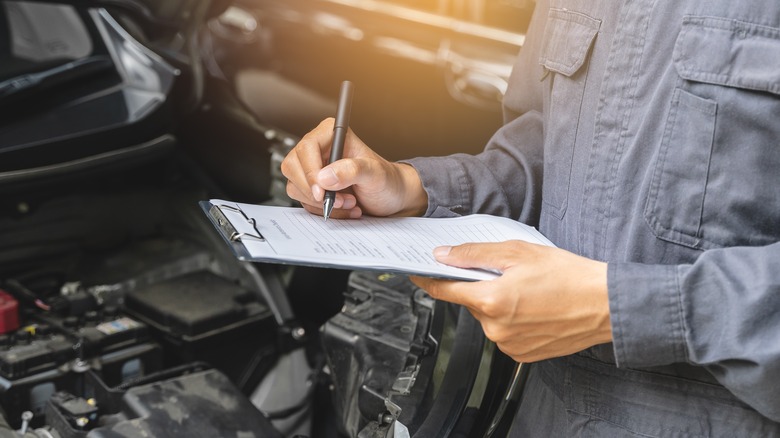How Long The Warranty Lasts On A Hyundai Engine (And How To Check For Current Recalls)
Extended warranties can be a useful way to protect your car for a good chunk of its lifetime, but they're also optional. Manufacturer's warranties, on the other hand, are just as big a part of a new vehicle purchase as that unmistakable new car smell.
Car companies often include a small assortment of various warranties that kick in as soon as you take ownership, and they can cover all kinds of issues, from emissions to engine troubles. That said, not all warranties cover the same parts or last for the same amount of time (or distance), so it's important to know your coverage terms. When it comes to safety recalls (specifically safety), though, you shouldn't have to worry about warranty coverage — the manufacturer is supposed to fix the affected vehicles regardless of warranty status.
Manufacturer recalls, particularly regarding vehicles and engines, should always be taken seriously. Whether it's possible debris mucking things up like with the Toyota and Lexus engine recall or a potential fire hazard like some recalled Kawasaki engines, it's always a good idea to address these issues as soon as you find out your vehicle is part of that group.
Matters of time or distance
Figuring out just how long a Hyundai's engine is under warranty depends on what parts of the engine you're looking into. It's also important to remember that the conditions for warranties can be very particular, so it's sometimes important to dig into the fine print in order to make sure your particular situation is covered. You can usually find warranty information in your owner's manual, but if you don't have access to it or don't want to search for it, you can find that information on Hyundai's official website.
The powertrain limited warranty provides limited coverage to selected engine and transmission/transaxle components (unspecified) that were either originally installed or replaced by Hyundai for up to 10 years or 100,000 miles. Whichever comes first. Hyundai also specifies that it's looking for components that are determined to be defective, either because of factory errors or poor materials. And don't skimp on oil changes or other semi-annual checkups either because if the situation falls outside what Hyundai considers normal use and maintenance, you might not be covered.
However, this warranty only applies to the original owner. Subsequent owner warranty coverage changes to a new vehicle limited warranty, which is good for up to five years or 60,000 miles.
Dealing with recalls
One of the simplest ways to find out if your Hyundai's engine is part of a recall is to check with Hyundai itself. The official website has its own engine recall page you can use to view a list of currently recalled models.
That said, you can also perform a search for your vehicle using the vehicle identification number (VIN). Your VIN is a 17-digit number that's usually found somewhere on the driver-side of the dashboard, inside the driver-side door (where the door connects to the car, called the jamb), or on important vehicle documents like the insurance card or pink slip (a.k.a. the title). Type your VIN into Hyundai's recall search bar, and Hyundai will let you know if the car is part of a service campaign or recall, and the available data (which is updated regularly) goes back to 1986.
Alternatively, you can check for Hyundai engines affected by recalls by checking other online services such as Asbury Automotive Group. Lists and records of various recalls throughout the years are provided, but it can also be handy to have that previously mentioned VIN ready to go so you can plug it in and do a direct search.


